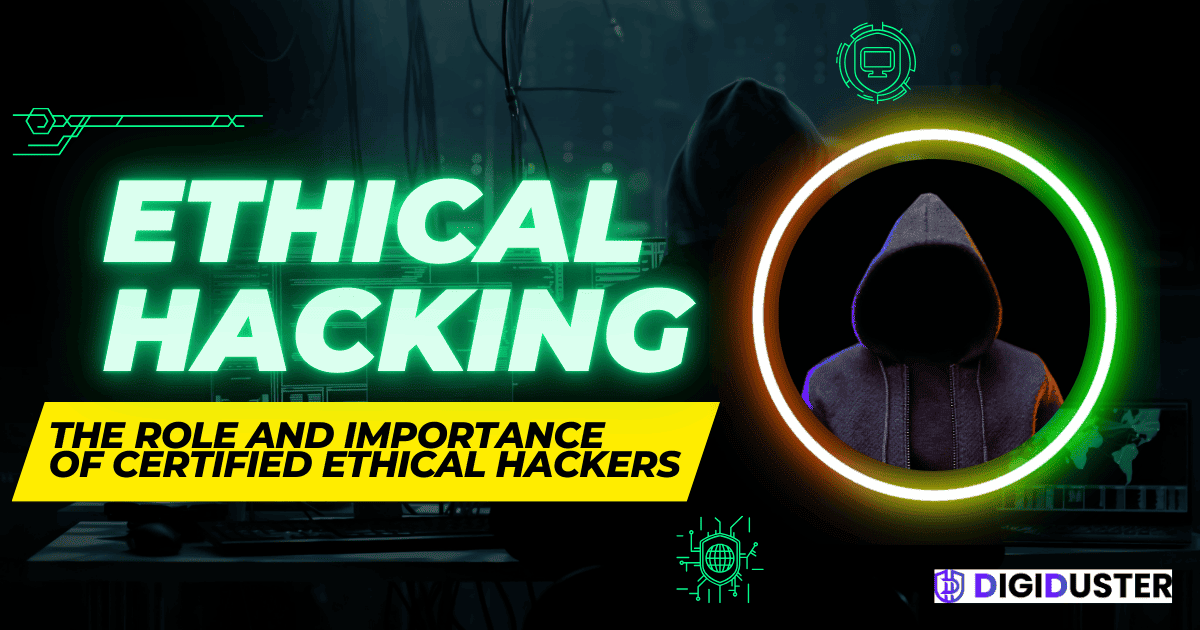In today’s digital world, ethical hacking has become a vital skill. Cyber security risks, data breaches, money theft, cyber espionage, and digital attacks are all common news stories.
The fact that evil individuals may now plan these actions from behind a computer screen in the comfort of their own homes makes all of this possible.
Because the Internet is so widely accessible, an exponentially higher number of hackers attempt cybercrimes due to this ease. Naturally, this phenomenon has raised the need for people with cybersecurity and ethical hacking expertise.
Understanding Ethical Hacking:
It is suggested that when we discuss ethical hacking, we are talking about hacking that is motivated only by moral or ethical principles and does not include malice. Any hacking that has permission from the target system’s owner is considered ethical hacking.
It can also include implementing proactive security measures to protect systems from hackers who want to compromise user privacy.
Technically speaking, ethical hacking is the technique of getting around or breaking through security controls put in place by a system to identify weak points, data breaches, and possible dangers.
Only when the corporate or regional cyber laws and regulations are adhered to is it considered ethical. Formally, this work is referred to as penetration testing. This approach, as its name implies, is trying to go inside the system and record all of the actions that are taken.
This makes it possible for the organization’s security team to deploy a security patch to the system and essentially close the door for an attacker to access the system or carry out a hack.
Ethical Hacking Types:
There are some types of Ethical Hacking.
Web application hacking:
Web hacking is the act of taking advantage of software over the HTTP protocol by manipulating the URI, making use of the program’s built-in Chrome browser, or collaborating with HTTP elements that are not stored in the URI.
System hacking:
Through system hacking, hacktivists can access personal computers via a network. IT security professionals can employ packet sniffing, malicious software creation, privilege escalation. And password breaking as defensive techniques to counter these attacks.
Web server hacking:
Real-time web content is generated by an application software database server. Thus, to get login passwords, passcodes, and corporate information from the web application, attackers employ glueing, ping flood, port scan, sniffing assaults, and social engineering tactics.
Hacking Wireless Networks:
Since wireless networks communicate by radio waves, an intruder may simply inject the system from a nearby area. To find the Identifier and compromise a wireless network, these attackers frequently use network sniffing.
Social Engineering:
Social engineering is the technique of controlling large groups of people to reveal private information. Since it is typically easier to target your natural reluctance to trust others than it is to find out how to fake your equipment, eugenics is utilized by criminals.
See also: What is The Importance of Cybersecurity in Today’s World
The Role of Certified Ethical Hackers:
In today’s cybersecurity ecosystem, certified ethical hackers play a critical and varied role. Let’s examine their roles in more detail as well as the importance of them:
Finding Vulnerabilities:
Qualified Ethical Hackers are skilled in using a range of instruments and methods to find weaknesses in systems, networks, apps, and other digital assets. They identify vulnerabilities that may be used by hostile actors by simulating actual cyberattacks through in-depth assessments and penetration testing.
Risk Mitigation:
Following the identification of vulnerabilities, CEHs are essential in formulating plans to reduce risks and improve cybersecurity posture. This might entail setting up firewalls, fixing software vulnerabilities, putting strong security measures in place, and making suggestions for hardening systems.
Regulatory Compliance:
Organizations must abide by regulatory standards for data security and privacy in an era of strict data protection rules like GDPR, HIPAA, and CCPA. Certified Ethical Hackers carry out security assessments, spot non-compliance problems, and suggest corrective measures that comply with legal requirements to help ensure compliance.
Incident Response:
Security events can still happen even with preventive measures in place. CEHs are essential to incident response in these situations because they look into breaches quickly, contain the damage, and get operations back to normal.
Security Awareness:
Creating a culture of security awareness within enterprises is another goal of Certified Ethical Hackers. They teach staff members about social engineering techniques, cybersecurity best practices, and the value of being vigilant against possible attacks through training sessions, workshops, and educational programs.
The Importance of Certified Ethical Hackers:
To secure digital assets, preserve sensitive data, and bolster cybersecurity defences against a variety of attacks, Certified Ethical Hackers (CEHs) are essential. They are significant because of the following main reasons:
Proactive Security Measures:
Before hostile actors take advantage of vulnerabilities and flaws in systems, networks, and applications, CEHs use proactive security measures to find and fix them. They assist companies in strengthening their entire security posture and proactively addressing any security threats by carrying out in-depth evaluations and penetration testing.
Compliance with Regulatory Standards:
Organizations in a variety of sectors must adhere to regulatory standards due to the emergence of several data protection laws, including GDPR, HIPAA, and PCI DSS.
By performing security audits, evaluating adherence to regulatory standards, and putting policies in place to protect sensitive data and uphold regulatory compliance, CEHs help firms ensure compliance.
Protection of Confidential Information:
Protecting sensitive data, including financial records, intellectual property, and personally identifiable information (PII), requires maintaining confidentiality, which is a fundamental component of information security.
See also: Securing the Future: Guide to Entering the Cybersecurity Field
A certified ethical hacker’s job is to protect sensitive data by finding and fixing security flaws, encrypting data, and putting access restrictions in place to stop illegal access and data breaches.
Protecting Digital Infrastructure:
The availability and integrity of digital infrastructure are critical at a time of digital transformation and networked systems. By evaluating the security of servers, network devices, cloud platforms, and Internet of Things (IoT) devices CEHs are essential to the protection of digital infrastructure.
Increasing Security Awareness:
Developing a cybersecurity culture within companies is something that Certified Ethical Hackers help with. Employees are empowered to actively participate in safeguarding organizational assets using training programs, workshops, and educational initiatives.
Wants to learn more about Ethical Hacking:
Follow DigiDuster to learn interesting facts about ethical hacking and certified ethical hackers.



